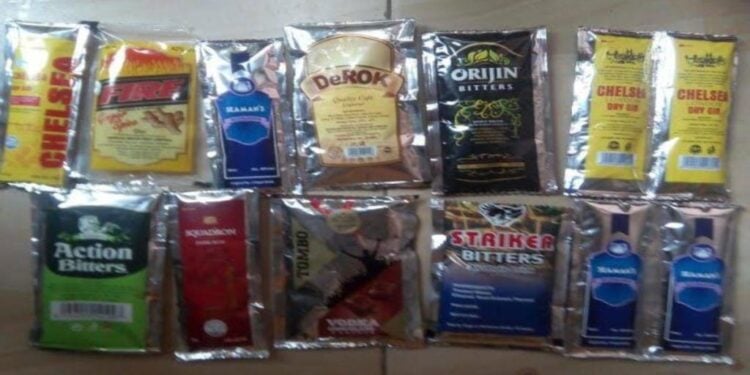News
BREAKING: Senate Gives NAFDAC Final Deadline to Enforce Sachet Alcohol Ban Nationwide
The Senate has mandated NAFDAC and regulatory agencies to fully enforce the ban on high-strength alcoholic beverages packaged in sachets by December 2025.

- The Senate has mandated NAFDAC and regulatory agencies to fully enforce the ban on high-strength alcoholic beverages packaged in sachets by December 2025, rejecting further industry requests for moratoriums.
The Senate has directed the National Agency for Food and Drug Administration and Control (NAFDAC) and other regulatory bodies to strictly enforce the ban on packaging high-strength alcoholic beverages in sachet formats starting December 2025
Lawmakers resolved that no additional extension of the phase-out moratorium will be granted, following the adoption of a motion sponsored by Senator Asuquo Ekpeyong focusing on the urgent need to end sachet-pack alcohol.
In his lead debate, Ekpeyong cited industry agreements and public-health concerns, noting that in 2018 stakeholders— including the Federal Ministry of Health, FCCPC, NAFDAC and major beverage associations—signed a five-year Memorandum of Understanding to phase out sachet alcohol due to its affordability and accessibility to youths and vulnerable populations.

Merely in 2024, the government granted manufacturers a one-year moratorium to deplete existing stock and prepare alternative packaging. However, with December 2025 looming, Ekpeyong warned that further lobbying by manufacturers undermines regulatory authority, public health and market fairness.
DON’T MISS: Nigeria Immigration Service Unveils Single Travel Emergency Passport for Nigerians Abroad
The resolution also instructs the Federal Ministry of Health to remove any impediments restricting NAFDAC’s enforcement, and to accelerate the launch of the National Alcohol Policy—which is expected to explicitly ban sachet formats of high-strength alcoholic beverages and initiate widespread public-sensitisation.
Health experts say the sachet format fuels addiction, road accidents, school drop-outs and domestic violence, while industry insiders warn of significant job losses and revenue decline in the informal sector.
As the countdown to December 2025 begins, regulators and manufacturers must align to ensure compliance or face full implementation of the ban as scheduled.























